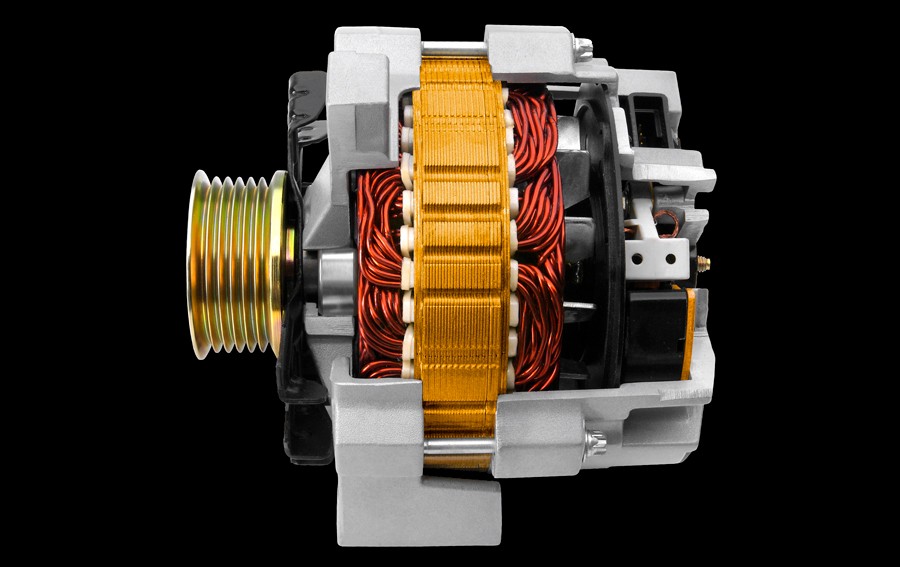Understanding the factors that influence Car Alternator Cost can help you budget for this essential repair. While alternators may look similar, several variables affect their price, from the car’s make and model to the alternator’s amperage and warranty.
 Car alternator cutaway
Car alternator cutaway
Factors Influencing Car Alternator Prices
The cost of a new alternator isn’t fixed. Here’s a breakdown of the key factors:
Vehicle Specifics
-
Year, Make, Model, and Engine Size: Your car’s specific requirements dictate the alternator type. Always provide these details when searching for a replacement to ensure compatibility. An alternator for a compact car will likely cost less than one for a large truck.
-
Amperage: Higher amperage alternators, designed for vehicles with greater electrical demands, often cost more due to increased material and manufacturing complexity. They generate more power for accessories like heated seats, powerful audio systems, and more.
-
Mounting Style: The alternator’s physical configuration must match your car’s engine compartment. This limits options and can impact price. Specialized mounting systems can increase costs.
-
Electrical Connections: Older, “one-wire” alternators are generally less expensive than modern “three-wire” alternatives with more complex wiring and voltage regulation.
Warranty
- Warranty Length: Alternators with longer warranties, especially lifetime warranties, often come with a higher upfront cost. This reflects the manufacturer’s confidence in the product’s longevity. A longer warranty offers peace of mind but comes at a premium.
Availability
- Core Availability: Remanufactured alternators rely on used cores. Limited availability for specific models increases cost. Less common vehicles might have more expensive alternators due to core scarcity. New alternators are also an option, often at a higher price point.
The Alternator’s Crucial Role
The alternator is the powerhouse of your car’s electrical system. It generates electricity to power everything from headlights and radio to vital engine components. The alternator keeps the battery charged and ensures a consistent flow of power while the engine is running.
Recognizing Alternator Issues
A failing alternator can lead to various problems. Be aware of these warning signs:
- Illuminated Battery Warning Light: This indicates a charging system problem, often pointing to a faulty alternator.
- Burning Smell: A burning rubber or electrical odor suggests potential alternator issues like a slipping belt or internal damage.
- Dim or Flickering Lights: Inconsistent voltage from a failing alternator can cause unusual lighting behavior.
- Erratic Electrical Operation: Slow power windows, radio static, and other electrical glitches can stem from low voltage due to alternator problems.
- Whining Noise: A whining sound from under the hood may indicate worn alternator bearings, signaling impending failure.
Driving with a Faulty Alternator
A short trip with a mildly undercharging alternator might be possible, relying on the battery’s reserve. However, overcharging can cause significant damage. Never drive with an overcharging alternator, as it can harm sensitive electronics. A tow truck is the safest option.
Alternator Lifespan and Replacement
Alternator lifespan varies greatly, typically lasting 7-10 years or 100,000-150,000 miles. Regular vehicle maintenance can help prolong its life. Consult a qualified mechanic for testing and replacement services. Don’t wait until a complete failure leaves you stranded.
